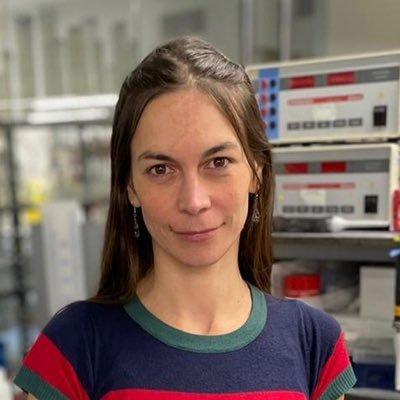Staff Directory
Professor Nitzan Rosenfeld
Director, Barts Cancer Institute; Professor of Applied Cancer Research
The Rosenfeld group develops molecular diagnostic tools for cancer detection, characterisation and monitoring, to help make more informed treatment decisions. We focus on liquid biopsies, in which we analyse blood samples to detect and characterise cell-free circulating tumour DNA (ctDNA).
Professor Francesca Ciccarelli
Professor of Cancer Genomics, Barts Cancer Institute Principal Group Leader, Cancer Systems Biology, The Francis Crick Institute
Our group investigates cancer evolution, with a focus on understanding how genetic changes influence disease progression, response to therapy and development of resistance. We particularly concentrate on gastrointestinal cancers such as colorectal, stomach and oesophageal cancer.
Professor Tatjana Crnogorac-Jurcevic
Professor of Molecular Pathology and Biomarkers
My research focuses on molecular pathology of pancreatic cancer, in particular its development and progression. We are using this knowledge to develop biomarkers for early, non-invasive detection of this malignancy in urine specimens.
Dr Özgen Deniz
Lecturer
Our research aims to understand the epigenetic regulation of transposable elements and how their dysregulation contributes to the generation and development of cancer. In particular, we investigate their roles as gene regulators and triggers of anti-tumour immunity in blood cancers.
Dr Gabriella Ficz
Reader in molecular biology and epigenetics
My group aims to discover the epigenetic changes taking place during cancer initiation and develop potential drugs that can prevent these changes which may be abnormal but reversible, before many damaging mutations occur.
Professor Marco Gerlinger
Professor of Gastrointestinal Cancer Medicine; Consultant Medical Oncologist and Director of GI Cancer Research at St. Bartholomew's Hospital
We are investigating how drug resistance evolves in bowel and gastro-oesophageal cancers, how these tumour types can be treated more effectively through novel immunotherapies and targeted drugs, and how treatment sensitivity and resistance can be predicted.
Professor Michelle Lockley
Clinical Professor of Medical Oncology, Honorary Consultant
Our lab aims to improve treatments for women with ovarian cancer, particularly those that are resistant to chemotherapy. We are interested in developing therapies that can adapt to the evolution of chemotherapy resistance over time such as Adaptive Therapy.
Professor Sarah McClelland
Professor of Cancer Cell Biology and Genomics
My lab aims to understand the mechanisms that underlie numerical and structural chromosome aberrations in cancer at a molecular level, which also involves understanding how normal cells replicate and segregate their genomes.
Dr Lovorka Stojic
Senior Lecturer
My group studies how RNA-mediated mechanisms, in particular long noncoding RNAs, regulate cell division and how dysregulation of these processes leads to genome instability and cancer.
Dr Jun Wang
Reader in Genomics and Data Science
I have broad research interests and experience in bioinformatics, cancer genomics and data analytics. These research areas mainly involve developing and applying bioinformatics and computational approaches to analyse large-scale cancer datasets to uncover novel diagnostic and prognostic biomarkers. I also lead the Cancer Research UK Barts Centre Bioinformatics Core Facility.
Dr Benjamin Werner
Reader in Somatic Evolution
My group combines mathematics, computer simulations and genomic information to study evolutionary processes. We aim to understand how a tumour’s evolutionary history is reflected in its genome, how evolution can be quantified in individual tumours and how this information predicts future evolution.
Dr Emma Bailey
I am providing bioinformatics support for several projects focusing on squamous cell carcinoma. This generally involves developing bioinformatics pipelines for large-scale cancer datasets and utilising computational approaches for analysis, with the overall aim being to uncover novel diagnostic and prognostic biomarkers.
Dr Meng-Lay Lin
My research interest focuses on risk stratification signatures for Barrett’s oesophagus progression to cancer using high throughput multiplexed imaging, bioinformatics, shallow whole genome sequencing, and spatial transcriptomics.
Dr Audrey Lumeau
My research focuses on understanding the relationship between chromosome instability mechanisms and tumour cells’ resistance to therapies.
Dr Nathaniel Mon Père
I investigate mathematical properties of somatic evolution in the context of both cancerous and healthy tissue.











